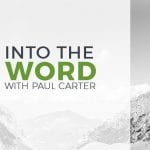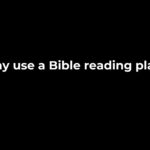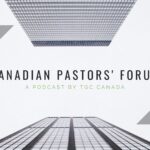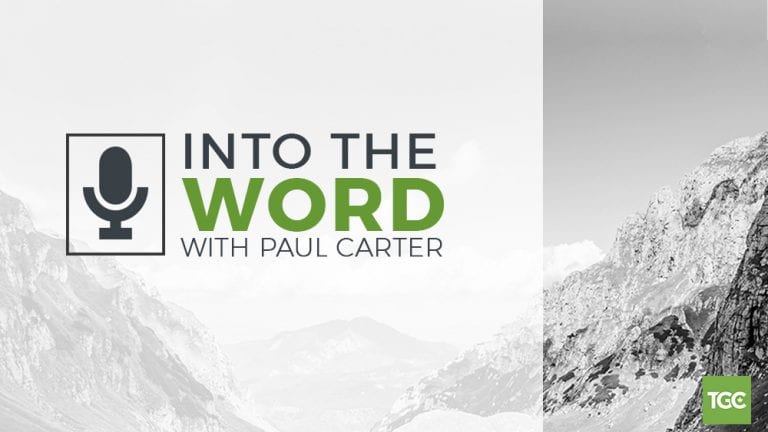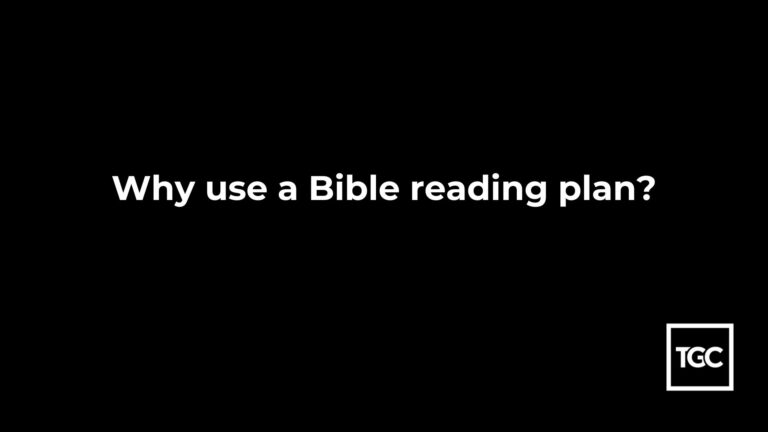I’ve been involved in a number of conversations recently about how to work hard as a pastor without blowing it as a husband and a dad. I certainly can’t claim that I’ve always done that right myself, but I do believe that I have learned a few useful things over 30 years of ministry and 28 years of marriage that younger pastors might find helpful.
Given that I am writing this for hard-working pastors, I’ll attempt to be as efficient as possible. I’ve got six categories for you: Habits, planning, overlap, locality, longevity, and tools.
Habits
There are certain things you can start doing early on in ministry that will pay massive dividends over time. Reading through the Bible every year, using some kind of Bible reading plan, would certainly fall into that category. If you do that, for a decade or two, the Bible will begin to feel like your native language. When you’re doing sermon prep, you’re not going to searching about for that verse in Proverbs that says, ‘the heart of the King is like a water course in the hand of the Lord’; you are going to know where that is; those verses will be immediately at your fingertips.
That will save you enormous amounts of time! It will save you time in sermon prep, it will save you time in Bible study prep; it saves time everywhere! That’s a huge efficiency, so make the commitment early on to read through the Bible every year.
Another habit I would recommend has to do with the biblical languages. I’m sitting here at my desk right now looking at my Greek New Testament. When I got out of seminary my professors warned me that if I didn’t work on my Greek every day, I was going to lose it. And there is some truth in that. I made the decision, very early on, that I was going to work in the biblical languages five times a week. That was my goal. I couldn’t quite do every day, but five times a week I was going to attempt to do that and I used that time to translate my way through the Greek New Testament. I don’t remember now how long it took me to complete that project, I think it was 10 or 12 years.
However long it took, that completed New Testament is still sitting on my desk. All that work is done now, so when I was writing sermons in my 20s and 30s, I was having to spend, 2-3 hours translating the passage, but now I can go to the text and see all the work I’ve done there. I know the main verb, I can identify the participles – all that work is done, and that saves me an enormous amount of time.
Another really helpful habit for me has been the habit of studying through whole books of the Bible every year. I started doing that when I was around 27, using the Tyndale Old and New Testament series. Those are fantastic in terms of providing an in-depth introduction to the text. I read most of those and that has paid huge dividends for me as a pastor, because now every time I go to a book of the Bible, whether to preach on it or to do a series at Into The Word, I have at least one commentary already sitting in my brain as a sort of base, so I’m just adding onto that. That’s incredibly helpful and it reduces preparation time, compared to when I first started out.
Another habit I would recommend has to do with reading and marking up books. When you read a book, highlight and make notes in the margin that you’ll be able to understand 10 years later. I use a Hebrew alphabetic numbering system to help me comment on the text that I’m reading, so I’ll just I’ll make a little Aleph by the word or thought I want to reflect on and then at the bottom of the page, I’ll write my note. Sometimes I’ll just write a big word in the margin beside a paragraph like “repentance” or “original sin”, or whatever. This will make it much easier to find the quote or the passage you are looking for later on. Again, that will save you massive amounts of time later on as you build up a library of quotations. If you want to take that to the next level, you can start a file in Word or Evernote of citations from a particular book or author. I will often read a book and then create a file with the best 25 or 30 quotes from that book, ready to copy and paste into future documents. That is a huge time saver as well.
Finally, in terms of habits, I recommend the practice of preparing a full manuscript when you are preaching. My goal when I am preaching is to look at the manuscript as rarely as possible – and that can drive our PowerPoint people crazy, but I think it’s been a good day in the pulpit if I didn’t need to look at the manuscript and I was able to be led by the Spirit. That may result in some unplanned illustrations and applications, but the manuscript helps me nail down my thoughts and present them in an efficient way. It also allows me to reuse and reformat the material for other uses. If I feel that a sermon was used by God and helpful to people then, I am invited to speak elsewhere, I can rework that message, as opposed to writing something new from scratch. Repurposing a message takes a fraction of the time compared to a fresh composition. That allows you to do more out of the same base of effort, and over time, by God’s grace, that adds up to additional opportunity and impact.
Planning
I learned the importance of planning largely by experiencing the consequences of not planning. Earlier in my ministry I would run into months that had too many large items in them that would result in overload. As a result of that, I started trying to plan and schedule a year in advance. Now, when I say “plan” I’m referring to “big rock items”. I’m talking about the sermon series, the travel plans, the conferences, the mission trips, the Small Groups you are going to teach and the continuing education classes you’re going to take. If you plan all that out in advance, then two or three times a year you are going to identify commitments and opportunities you need to say no to. That will keep you from burning out and from placing an unnecessary burden on your wife and family.
In addition, advanced planning provides the opportunity to strategically plan and schedule your readings. I planned out our recent series on Biblical Anthropology almost a year out, so about 9 months prior to the start of that series I was able to begin reading a number of books that I knew would be useful to me in terms of exploring that theme.
Overlap (Or Stacking)
The concept of overlap, or stacking, is a by-product of advanced planning. This has to do with sequencing your outlay so that you can make use of the same base material in a variety of ways. By way of example, I did a lot of work for the 1 & 2 Samuel series that I released over at Into the Word. I read 4 to 5 commentaries for that, and again, I was thankful that I already had a couple of those “in the bank” so to speak.
Regardless, I spent a ton of time in 2024 reading and preparing for that series, but then, in order to make maximum use of that study time, I planned out multiple layers and applications for that material. There was the podcast series itself, released in August and September, and then I have also planned to make use of it again through a preaching series at my church beginning in January. I’ve started using it already as the base audio for the Life 100.3 radio program that we do and then, finally, it will be used again in March when I go to teach pastors in South Africa. We’re going to do an overview of 1 & 2 Samuel, which will include a survey of the books as a whole, along with a particular focus on how David anticipates and illustrates the person and work of Christ, as well as looking at some leadership lessons that can be gleaned from the lives of Samuel, Saul and David.
That’s four distinct applications of the one mass of study that I did in the first 9 months of 2024; that’s what I mean by overlap or stacking. Adopting this strategy will result in massive efficiencies for you as a pastor.
Locality
I’ve had to commute during a couple of seasons in my life, but by the grace of God, more often than not, I’ve enjoyed the privilege of living locally – with respect to my place of ministry. When I was pastoring in Mississauga we lives about 4 km from the church. Here in Orillia, I’m blessed to live about 720 metres from our church. That represents a huge efficiency, in terms of time.
I like to be either at the church serving or at home with my family. I don’t love sitting in traffic or sitting on a train. Now, of course, this option is not available to every pastor in every situation. Some churches are located in high-rent neighbourhoods, and so living locally is not realistic. But if the option does exist, there are massive advantages to the pastor. In addition to cutting down on wasted time in the car or on the train, there is the benefit of what I like to think of as “accidental pastoral care”. Every time I go to Zehr’s or Walmart I end up having multiple pastoral contacts. I’ve prayed with people at the grocery store; I’ve had important evangelistic conversations in the parking lot of a big box store. It is almost magical how powerful it can be to live locally – if you can pull it off.
Longevity
Another source of efficiency comes from longevity in a particular pastoral context. Ministry generally gets easier and faster the longer you serve the same people in the same location. You just know everyone so well! When a young couple comes to you for counselling, you know them, you know their family, you know their background, and that’s huge, in terms of the practice of pastoral care.
The same could be said with respect to benevolent care. Once you’ve served in the same town or neighbourhood for a couple of decades you know all the scams, and you’ve met most of the scammers and that leads to efficiencies. There are people you know you should listen to and spend extra time with, and there are people you know you really shouldn’t. Knowing that allows you to direct your finite time and resources to those who are best positioned to benefit from them.
Longevity also allows you to make decisions and lead change at a much faster pace. There is an old saying, that I think started with Stephen Covey that says: “leadership moves at the speed of trust”.[1] The more people trust you, the easier it is to lead. We’re at the place now at Cornerstone where most of the guys on our board have been together for a long time. We know each other. We appreciate each other. We love each other enough. We trust each other – and our people have come to trust us. They’ve seen us living and leading in this church for almost 20 years and so there is a bit of track record there and that has led to an environment in which it is significantly easier to navigate change. We’re able to make big decisions and to navigate transitions now in a matter of weeks that would have taken us months or even years to navigate in the past.
Tools
When I started out in ministry I was writing my sermons and copying out Scripture citations by hand, but now with Accordance, I’m just copying and pasting, and it drops right in with the proper citations, the right spelling – it’s marvelous!
There are such great tools today, whether it’s Accordance or Logos – either of those programs is light years ahead of what was available to me at the start of my ministry. We are living in a golden age of tools! In truth, I was a little late to the party, when it comes to tools. I used to glory in the fact that I was something of a Luddite in my late 20’s. I was one of the last guys to get a smartphone.
I was rocking the clamshell flip phone until I was almost 40, but slowly but surely, I began to realize that, as many problems as there are associated with these tools, there are also incredible efficiencies. With a smartphone you can listen to an audiobook as you wait for your child to finish soccer practice, or you can listen to a podcast on something you are interested in whole sitting in traffic or running on the treadmill – that’s incredibly helpful! And there are software programs that allow us to make multiple uses of material. For example, this article was created using a program that generates a transcript from an audio source. I had my son dump the audio from the podcast I released with the same topic into this program and then all I had to do was edit the text document that he sent to me. Of course, if you are younger than me, you can skip the “upload the file to your Gen Z son” stage of the process, and do that work directly. The point is, there are tools out there that allow you to do more, for more in less time.
And that matters.
Why?
Because the story of the talents is in the Bible. We’re all going to have a conversation with Jesus one day about what we have done with the time, talents, and opportunities he has given us. So we want to be thinking about that and preparing for that as soon as possible. If these six categories have helped you to do that, then I will be thankful.
And may God alone be glorified.
Pastor Paul Carter
If you are interested in more Bible teaching from Pastor Paul you can access the entire library of Into The Word episodes through the Audio tab on the Into the Word website. You can also download the Into The Word app on iTunes or Google Play.
This article is a lightly edited transcript of a podcast episode by the same title which you can find here.
[1] As for example here: https://www.youtube.com/watch?v=uXkizQFhH9g







